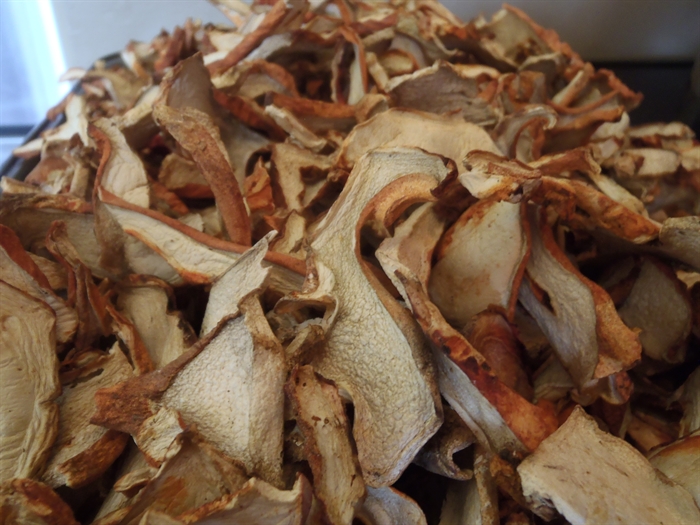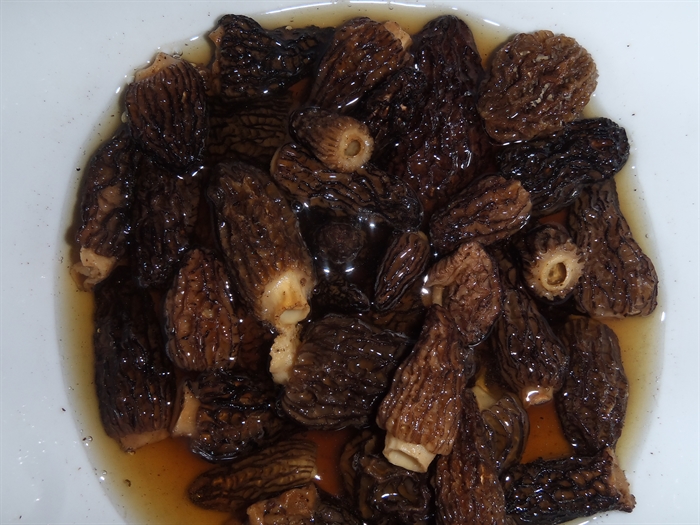
Dried lobster mushrooms
(SCOTT MORAN / iNFOnews.ca)
March 15, 2017 - 12:49 PM
OPINION
It is the time of year to dig deep into the preserves. If you are a wild foodie like me, one of the best-preserved foods are dried mushrooms.
I often hear from potential customers that they have never used dried mushrooms before. We see them occasionally at specialty grocery stores and farmers markets, sometimes even supermarkets or Costco, but they are not exactly something our grandmother would be cooking with (with a few notable exceptions for European grandmas).
Having over fifteen years experience picking, preserving and cooking wild mushrooms, I have found several ways to work them in to my every day food. Before cooking dried mushrooms you soak them for an hour or so to rehydrate. The fungi will swell up with water and be more or less back to their original state. The water leftover from soaking can be saved and used as a stock in soup or sauce.
The classic cooking method of frying in butter is always a safe and tasty choice. Cook mushrooms this way and add them to a stir-fry, pizza, eggs or just about any salty dish. For a unique pizza idea, I like to make a creamy sauce with my fried lobster mushrooms, and then toss the sauce into a blender to make a puree. My two favourite uses for this puree are pizza sauce and California rolls. The seafood flavour of the mushrooms and creaminess of the sauce make a perfect replacement for crab and mayo in a California roll. Skip tomato sauce and make a winter pizza with a creamy base of mushroom puree.

Dried morels rehydrating
(SCOTT MORAN / iNFOnews.ca)
Another creative, simple, and delicious use for dried fungi is to turn a few pieces into powder. All the species of edible fungi have a different taste (I have six types available at the Kelowna Farmers Market at Parkinson Rec Center on March 25) that will add an earthy layer of flavour to common recipes. Sprinkle a tablespoon of porcini powder across a stir-fry, into a soup or burger mix, or even across some mushrooms in a pan.
Incorporating wild food into our lives is a great way to promote a local food culture and represent the delicacies of B.C.'s forests on our plates. The experience of eating something that is not from a farm can be an eye-opener for people of all ages and backgrounds. Appreciation for our surroundings beyond beauty is important to help maintain a healthy relationship with our wild surroundings.
— Scott Moran is a local forager discovering his own path to food freedom.
We welcome your comments and opinions on our stories but play nice. We won't censor or delete comments unless they contain off-topic statements or links, unnecessary vulgarity, false facts, spam or obviously fake profiles. If you have any concerns about what you see in comments, email the editor.
News from © iNFOnews, 2017